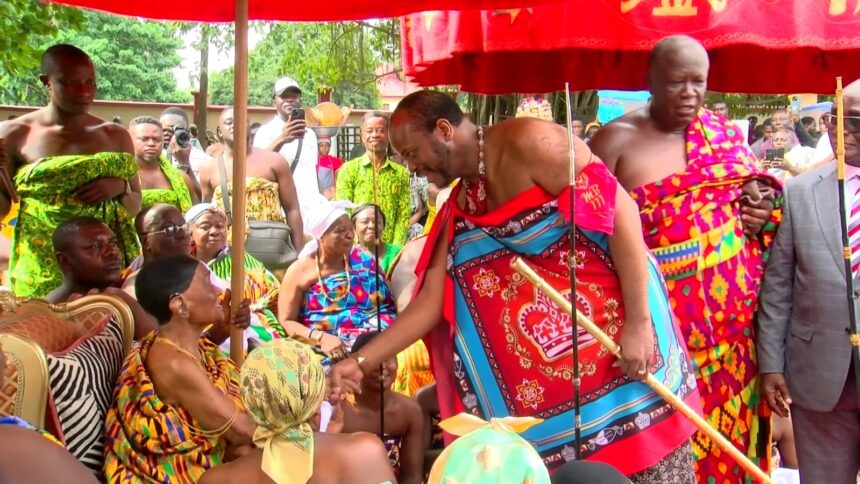The King of Eswatini, His Majesty Mswati III, recently emphasized the importance of modernizing and formally documenting African cultures to strengthen their relevance in governance and public administration. Speaking at a gathering of chiefs at the Manhyia Palace in Kumasi, the monarch highlighted the significance of grounding local laws and governance structures in traditional values rather than adopting externally imposed systems.
King Mswati III underscored the value of codifying customs to ensure global recognition and to serve as tools for good governance. He emphasized Eswatini’s commitment to preserving tradition while embracing modern progress. Drawing parallels between Eswatini and Asanteman, he highlighted their shared history of resistance to colonial domination, particularly praising the Asantes’ refusal to surrender the Golden Stool as a symbol of unwavering spirit.
The King commended the Kumasi Metropolitan Assembly’s approach to governance, which integrates traditional leadership into modern administrative frameworks. He cited this as a model for effective governance that honors heritage while delivering essential services to the people. The durbar, attended by paramount chiefs from the Ashanti Region, showcased cultural solidarity and celebrated the bonds between Eswatini and Asanteman.
Daasebre Otuo Serebour II, Paramount Chief of the Juaben Traditional Area, speaking on behalf of the Asantehene, expressed gratitude for the historic visit, emphasizing its significance in strengthening the ties between the two regions. He called for cultural, economic, and spiritual exchanges that honor the past and pave the way for a brighter future.
The event was also attended by dignitaries including the Ashanti Regional Minister and the Minister for Local Government, Chieftaincy, and Religious Affairs, who represented President John Dramani Mahama. The visit served as a call for unity, heritage preservation, and progressive development across the continent.
In conclusion, the King’s call for the modernization and formal documentation of African cultures underscores the importance of preserving traditions while embracing progress. By anchoring governance in traditional values and integrating them into modern frameworks, African nations can ensure effective governance that honors heritage and serves the people. The durbar in Kumasi was not only a celebration of cultural solidarity but also a step towards fostering unity, heritage preservation, and development across the continent.








